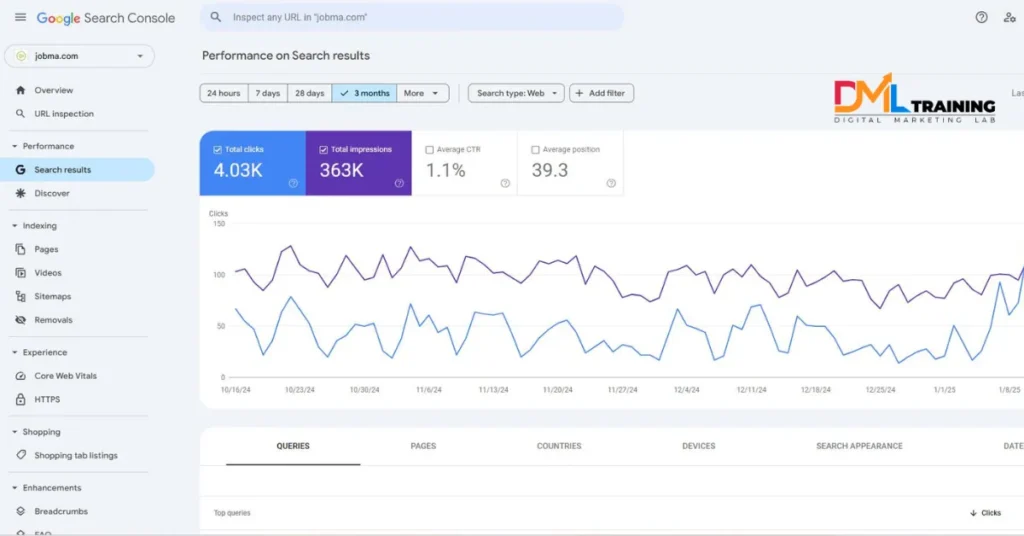Launching a Website Isn’t Enough
You need solid SEO groundwork to rank higher, drive traffic, and build authority. Here’s a 2025-ready SEO checklist to set your website up for long-term success.
1. Pre-Launch SEO Setup
Before your site goes live, ensure these essentials are in place:
- Domain Name: Short, memorable, and keyword-relevant.
- Hosting: Choose a reliable provider for speed and uptime.
- SSL Certificate: Secure your site with HTTPS for better rankings.
Pre-Launch SEO Setup (Continued)
- Mobile Responsiveness: Design must work seamlessly on all devices.
- Robots.txt File: Guide search engine crawlers effectively.
- XML Sitemap: Create and submit it to Google Search Console and Bing Webmaster Tools.
2. Keyword Research: Lay the Foundation
- Primary Keywords: Use tools like Google Keyword Planner to target high-volume, low-competition keywords.
- Long-Tail Keywords: Focus on phrases with better conversion potential.
- Competitor Analysis: Study top-performing competitor keywords and find gaps.
3. On-Page SEO: Optimize Every Page
- Title Tags: Use primary keywords; stay under 60 characters.
- Meta Descriptions: Write compelling descriptions (150-160 characters).
- Header Tags: Structure content with H1, H2, and H3 tags, incorporating keywords naturally.
On-Page SEO (Continued)
- URL Structure: Short, descriptive, and keyword-rich.
- Image Optimization: Compress images and add keyword-rich alt text.
- Internal Linking: Connect pages strategically to guide users and improve crawlability.
4. Technical SEO: Get Your Backend Right
- Page Speed: Use tools like Google PageSpeed Insights to optimize loading times.
- Mobile-First Indexing: Test usability with Google’s Mobile-Friendly Test tool.
- Schema Markup: Add structured data for enhanced search features.
- Canonical Tags: Prevent duplicate content issues.
5. Build a Strong Content Strategy
- High-Quality Content: Create informative, engaging, and unique content.
- E-A-T Principles: Build Expertise, Authority, and Trustworthiness.
- Blog and Resources: Regularly publish fresh, value-driven content.
Content Strategy (Continued)
- Content-Length: Write in-depth articles (1000+ words) that thoroughly cover topics.
- User Intent: Align content with what your audience is searching for.
6. Off-Page SEO: Build Authority
- Link Building: Secure high-quality backlinks through guest posts, PR, and outreach.
- Social Media Signals: Promote your content across platforms for engagement.
- Brand Mentions: Monitor and convert unlinked mentions into backlinks.
7. Local SEO (If Applicable)
- Google Business Profile: Optimize with accurate, consistent details.
- Local Citations: List your business on directories; ensure NAP consistency.
- Reviews: Encourage positive customer feedback on Google and other platforms.
8. Analytics and Monitoring: Track Your Progress
- Google Analytics: Monitor traffic, user behavior, and conversions.
- Search Console: Check indexing, performance, and search queries.
- Regular Audits: Identify and fix SEO issues monthly.
9. Post-Launch Optimization
- Monitor Indexing: Ensure critical pages are indexed.
- Check Broken Links: Use tools like Screaming Frog to fix broken links.
- Content Updates: Refresh articles to keep them relevant and competitive.
10. Stay Ahead with Updates
- Follow Google’s algorithm changes.
- Join SEO communities to stay informed about industry trends.
- Adapt your strategies to keep your website competitive.
Set Your Website Up for Success
By following this SEO checklist, you’ll create a strong foundation for visibility, traffic, and growth. Remember: SEO isn’t a one-time task—it’s an ongoing commitment.
Are you ready to dominate 2025 search rankings?
That’s a Wrap!
I’m Prav Yadav, the Founder of DML Training

Our Clients Achieve Such Results Within the First 6 Months of Engagement Want Such Results for Your Business? DM Me Right Away.

